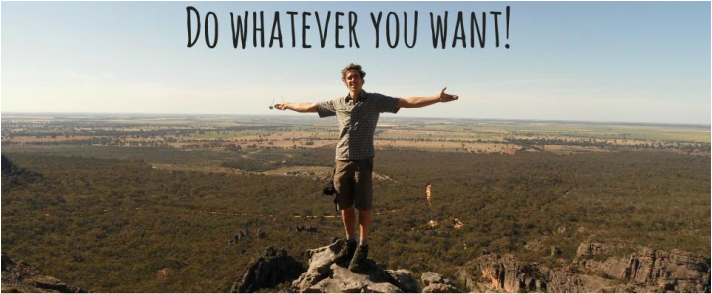
Synopsis: This is a the topic of a recent TEDx talk I gave in Belfast, November 2015. This is the story of my journey from that of a brutish and selfish rock climber to a intuitive and compassionate dancer, mindfulness practitioner and all round happier human being.
TLDR (Exec summary): Neil was an 11 year old boy, who loved to connect people, who saw that kindness was fun and it inspired others to be kind. He embraced physical adventure too! This was forgotten and stunted by secondary school adventures of judgement and bullying, where Neil responded by interpreting and internalizing negative messages and acted small in social situations and in learning. After a scoliosis operation at 17 he decided a pursuit of strength, independence and fun was all important and death was a possible answer to his problems, so he stopped being concerned about the preciousness of his life. He followed one passion single mindedly - rock climbing. Neil pushed himself for years. He buried his feelings of missing out on connection and didn't care about death or the impact it would have on others. This journey was fun and taught him much, but could have been safer. At 30 Neil embraced mindfulness, meditation, emotional sharing and empathy and self expression (in the form of blues dancing) he discovered that shame was stopping him connecting with others. When he did connect he discovered his learning increased consistently with his playfulness and his presence - his ability to be aware and accept his internal feelings and thoughts. Neil thinks it’s important that we remember the reasons why we started our activities and habits and strive to remember what is important, to us as individuals, beneath all the rules and structures we have created. Neil thinks this is partly human connection, love, support and FUN! Neil proposes that mindfulness, emotional literacy and communication could be core subjects, taught in schools. Neil challenges you to do whatever you want with playfulness and presence, so that you may cultivate the important qualities in life.
Introduction: Do whatever the you want!
My name is Neil Morbey. I'm a mindfulness practitioner and an adrenaline junkie, having spent over 15 years rock climbing around the world. Rather than try to motivate you into a specific way of living I’d rather say - “Do whatever the hell you want”. You only have so many tomorrows - enjoy yourselves! That’s what I focused on for most of my life and I want to tell you my story of the lessons I learned from a selfish youth spent rock climbing in the pursuit of fun.
Part 1: The boy who loved to connect, but ultimately chose challenge over connection.
When I was kid my favourite thing to do was make friends - I was great l at bringing people together and supporting classmates who were struggling to make friends and be happy. I was known as the very short kid with the big smile and big heart. I was also a fearless adventurer . There’s this particular vivid memory from Portugal - I was 12. My mother reluctantly allowed my brother and I to go body boarding. The waves were enormous and my brother was worried. I wanted to help him overcome his fear, so we went really far out from the shoreline. I distinctly remember being lifted up and thrown underwater by massive waves. I remember a vivid moment: I was in the middle of being rolled along the seabed by the power of the ocean - no control of my body - no chance of swimming - I had a ‘realisation’. In order to survive and enjoy this experience I had to go with the flow. I resurfaced, filling my lungs with precious air.and flopped back onto the board. Quickly I checked to see if my brother was okay - he looked scared, but he could see the look in my eyes and my enormous grin. I decided the best way to inspire him was to show him my lack of fear Together we faced incoming waves, shouting at the sea: “IS THAT THE BEST YOU CAN DO?!!!!!! That summer marked the end of my carefree childhood as I went into my first year of secondary school. I loved learning but I was scared a lot because I was bullied from day one and I lacked the physical prowess or social skills of my classmates. So I made myself small, stayed under the radar. I felt ugly, insignificant and powerless, as many teenagers do. I also found the pressures of examinations and subjects that I didn’t enjoy to be overwhelming. Art and Drama were classes I enjoyed and I remember vividly, during my final year painting exam, my teacher said to me “Neil, don’t worry about making mistakes - nothing is precious.” Perhaps he was right - is it true that nothing is precious? I pondered on that for some time, interpreting this as fact. I had many philosophical thoughts about death. Here’s one: My best friend, Martin, and I would escape the pressures and bullying by sitting on a bench and allowing ourselves to wonder. We used to joke about something we called The CONTINGENCY PLAN’.Our ideas was to trick the banks into loaning us money and to then travel the world in search of hedonism, fun and a better way of life, until the money ran out and then we’d end life in some spectacular fashion. We actually did travel, but didn’t jump off any cliffs, but internally I had interpreted death as the answer to my problems and that allowed me to stop worrying and bury our insecurities. I was very short and scrawny up until about 18 years old. I had a lack of success with girls. I decided that rather than share my feelings of inadequacy I would build muscle - seems like a healthy coping strategy right? But I started going to the gym at 14. Not a great idea! My bones hadn’t finished forming! So this exacerbated a curve in my spine and by 17 years old I had developed severe scoliosis that required major surgery. Recovery was immensely painful. For weeks I felt isolated and ‘lost’ during regular spasms of pain. I remember one evening, as I lay in pain, and shame over the weakness that I had. I wanted to hide away from judgmental eyes. I decided that night that I would devote the rest of my life to fun and happiness, on my own. I buried my fears deep inside. At the time Rock climbing was my main passion - and it became all-consuming. I developed a mental composure in extreme situations, whilst retaining a sense of play. Climbing also brought me the things I thought would help me most in life - independence and strength. I look back and find it interesting that I faced physical danger with playfulness and passion but I faced the‘ social’ dangers with seriousness and fearfulness - worrying about what others thought about me interpreting their judgements as true - I was weak and pathetic. Question 1: How did you face your fears and what did you internalize? When we don’t possess self confidence, skills, support we can end up feeling hopeless. These moments cause us to contract and internalise fear. We forget that those ‘realisations’ are simply internalised interpretations and aren’t necessarily true. These beliefs affect our lives until we are ready to look again at them with a new perspective, otherwise your thoughts become your habits and habits over time become ingrained into your values and beliefs. I often wonder if there are ways we can facilitate a willingness to face our fears or challenge our beliefs? When you look at your own past can you notice where you had the internal resources, inspiration or just brazen confidence to face fears and take risks… or times when you made yourself small and shied away from danger? I challenge us all to look at what we interpreted about ourselves from how we responded in those times? And more to the point, do your old habits still affect you? I believe that the most effective way to heal is to feel. but it was a fairly extreme journey to come to that interpretation. 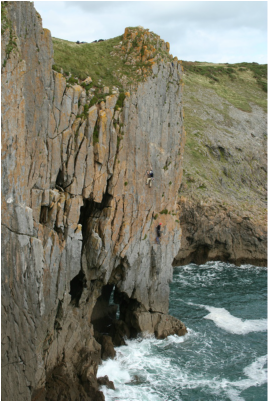 Imagine this is you. (It's me on a cliff in Pembroke) Imagine this is you. (It's me on a cliff in Pembroke)
Part 2: Rock climbing: Why and how I chose ‘positive focus’.
I became a rock climber at 17 years old and I really pushed myself hard. I found it fun and reconnected with a sense of personal power over my fate. To demonstrate I want you to Imagine yourself on a rock climb, perhaps a tall sea cliff, overhanging the ocean: You are perched on the tiptoes of your rubber shoes, on rock ledge an inch wide, with a heavy harness around your waist. Your fingers sweat slightly as you hold tightly onto some small, sharp edges of rock in front you. Above you the cliff steepens and below you your climbing partner far beneath looks worried. The rope hangs in long arc, swaying in the wind. Your foot starts to shake and you feel that familiar rise of muscle burn in your calves and forearms. In your mind you picture yourself falling and hitting the deck- and you think “Shit? I’m in trouble. What am I doing here??” That moment - that feeling - is simultaneously what I lived for and what I dreaded. I had a simple choice: to take positive action or to surrender to the mystery of falling. To me this feeling of power and surrender became synonymous with the feeling of being alive, and nothing else could compare to this adrenaline fuelled feeling. Back on the cliff, seeing no real alternative you face the challenge - you take a few slow deep breaths and whisper: “It’s okay. I’m okay.” “You can do this”. You stop hesitating and start moving. Your fear changes to excitement as climb in flow - no thoughts. You trust your body and it seems to know what to do, when you're focused on positive action, instead of the perceived risk. You play with the rock, using different tactics to overcome the overhang, body in perfect balance upon each move. Usually at this point I say something profound like: WOOOOOOOOOOOO! At the the top and I sit and stare - taking in my achievement and my relief at surviving. I enjoy this time and place. This moment - this feeling, is also why I do this. Relief and appreciation is part of the ecstatic feeling of being alive. Coping strategies or ‘adaptations’. Rock climbing is a lonely game gradual mastery; you can’t rush into. I had chosen an activity that taught me that making mistakes was fatal and pushed me to be strong and composed. I was playing so much that I DID rush into things - I had three major accidents and countless near misses. I became obsessed with strength rather than grace. I spent many years of my life pushing myself harder and harder, often climbing solo, without ropes or partners, to attain these contrasting feelings of rush and relief. This was quite an extreme way of connecting with a sense of FEELING ALIVE. As I look around the world I see other people with other single minded attitudes - such as people who spend hours every day playing computer games, or shopping or becoming workaholics. None of these are ‘bad’ things, in fact they may be done in very healthy, in life-affirming or productive ways. But often they are patterns of behavior which help people cope, distracting from what they could not bare to FEEL. We are always learning and the lessons are just waiting to come into awareness, sooner or later. This is all part of the journey and I don’t believe any path is right or wrong. Each brings unique experiences. In retrospect I see that I learned a lot of life skills about using positive focus to bring composure, using breath and words to change my state of mind, learning how to use my body and trust its natural sense of balance and intuition. It also took me all over the world and to some unique places. Question 2: Can we encourage confidence building in safe ways? The ability to take on our individual personal adventures and challenges is part of the process of learning. But my question is this: Can we encourage gradual confidence building whilst managing risks - and is a ‘feeling’ presence part of the key to achieving this?
Part 3: Adventures into the heart and into connection through dance
Up to my late 20’s I had a sense that if I died it didn't matter. I disliked any hint of weakness, which, as you can imagine, caused shallowness in my friendships and relationships I was headstrong and impulsive and thought little of the impact that my death might have on others. This is perhaps the ugly side of a life focused on play. That all changed somewhere in my 30th year. I became dissatisfied with climbing for the first time in years and off the rock I felt that I didn't really know myself. I wasn't enjoying my work or my relationships. So I moved to Bristol - which I found out was a city with HEART. I began reading obsessively into self-help, philosophy, psychology and spirituality. I was determined to rationally understand love and happiness. But that didn't work. I undertook a plethora of new activities to adventure into the heart and here are the four key areas I found critical to my learning: 1. Self-Empathy and introspection: Mindfulness!I've talked a lot about presence without explaining it. Well I learned all about it through meditation. I remember when I started I was connecting with parts of my body that I had ignored for years. Nerve damage from my spinal operation and years of abuse from rock climbing mean that I felt a lot of emotions in relation to these areas and l'd often cry during meditation. When I combined this with gentle self-enquiry I began to uncover the insight that all of my problems had a positive and negative perspective. Some of my coping patterns focused automatically on the negative. The more I practised paving attention objectively to sensations and emotions, instead of the busy negative thoughts the more I came into still presence or what I now call loving awareness. With practice I was able to calmly choose how to respond to situations, rather than impulsively react in old patterns. Also the more self-empathy and gentleness I practised towards myself the more compassion became my natural focus externally. This helped me become relaxed, emotionally happier and more connected with others. 2. Emotional intimacy and communication.I then discovered varied organisations that run workshops in all facets of human relationships I didn't even realise such things existed but I'm glad they do. This included the Mankind Project, Non-Violent Communication, Tantra and Sensual practices and motivational interviewing techniques. I found it was really useful to have structured workshops that allowed me to explore with others in the realms of emotional intimacy, exploration of my boundaries and communication in everyday relationships. I gained exposure and understanding of consent, jealousy and fear of rejection. I got to share and practice listening to others struggles and offer empathy and support. I also got to play, touch, and practice vulnerable self-disclosure in intimate groups. These workshops brought more than education, they provided me with touching experiences. I'm certain that the fact that I felt moved and moved others increased the effectiveness of my learning of not only subjects around emotions and communication, but also brought me in contact with self-learning, about my own desires and fears. 3. Learning to Self-Expression and Receptive Playing: Dance! I had always wanted to learn to dance. I remember that other boys who could dance would always attract girls and I felt bitter that I had no rhythm or connection between my body and the music. I learned Swing dancing in 2013 and it was fun - I actually found the basics quite easy. But I wanted a slower and more connected dance - I soon discovered blues dancing - where one could dance solo or in close embrace with either gender and the traditional lead/follow roles were often dropped, creating more of an expressive dance, where both partners had a voice. Steps were not the important thing - creativity and receptiveness were seen as the valuable traits. Dancing was frightening because it risked exposing the truth of my shame to others. I had tense muscles, partly because I always felt that I should appear strong and this tension blocked connection with people and with the more subtle music. So for the first year I was pretty depressed with my blues dancing, but I persevered. On my second year of dancing a friend of mine stopped me mid-dance, she kindly took my hands and wrapped them around her body and began to lead me through three exquisite songs, with my eyes closed. She showed me that it’s okay to play with the music imperfectly, to expressing intimately, whilst leaving space for me to do the same. I was inspired through feeling. I relaxed a lot evening and since then I've really taken to dancing and love to inspire and teach others - especially beginners! My old beliefs were slowly being ebbed away by the tools I've mentioned, but dancing really blew away the old cobwebs. Within self-examination, emotional literacy and self-expression there are many other tools and styles, and each has it’s own benefits. I'm not prescribing these specific styles, they are just the ones that appeared in my journey. Question(s) 3: Can we gently question how and why we play the way we do? But I want to ask: How many of us are playing alone because we either haven’t accepted our weaknesses or just feel that we don’t know how to play together well, or with a sense of our personal boundaries? Can we allow ourselves to be fully ‘seen’ in our vulnerability? And even more Can we be seen and give space to others to be seen?
Why presence is important:
I’ve discovered that playing and growing ‘with other people’ is far more effective than going it alone. Happiness shared is happiness squared, but the same goes for learning too. When you allow yourself to feel you heal and learn faster. This includes feeling positive and negative (uncomfortable) emotions and sensations. However, in any relationship we inevitably create styles and structures based on our preferences and what works. It’s also the same in dance; some structures are more flexible than others. This is true of all relationships, including political, religious and romantic. Styles can be fun. but as we move forward it is important to remember the core principles behind the structures are the important thing, otherwise we can take it all very seriously and fall back into blame, judgement, and shame. The antidote, for me, is playfulness AND presence - Paying attention (presence) whilst having fun. This naturally creates empathy, compassion and inclusivity. Severe traumas sometimes prevent us from connecting being present with our true feeling. A severe trauma could be the result of serious sexual, physical or psychological abuse and can often lead to a vivid memory and interpretation that gets ‘stuck’ in the system. There are many tools to help ‘’unstick’ these traumatic memories and resulting symptoms - but sometimes drugs or physiological therapies can provide necessary help - in which case a medical professional may be required. However, often just having someone listen and provide a safe space with skilfull and gentle enquiry is the key to building loving awareness and internal resources. This is part of my work now - healing. But the other part is prevention. In many cases it seems like people wait for the severe trauma before they are exposed to the concepts I’m talking about. - a bit like waiting to get a rotten tooth before you learn to brush your teeth. I think we can change all of that and make our culture more supportive and loving by encouraging skills that build awareness, self acceptance, empathy and compassion, even from an early age. The Future: Education If I was in charge of the curriculum of schools then Mindfulness, Emotional Literacy, Communication and Self Expression would be high on the agenda. They help us to learn more effectively and support one another, without shrinking back into coping mechanisms, which can often bury our feelings deeper. I think it is essential that people understand from an early age that it is okay to make mistakes. For young people, who may be in the beginnings of coping with shame and starting to avoid feelings we can use educate with playfulness and presence to help them see that their differences and imperfections are valuable and necessary. If we focus on problems (away from what we want) and only towards what we ‘should’ do then then we risk cutting ourselves us off from real connection (empathic) and can end up idolizing strength and despising weakness. Mindfulness is already starting to appear in schools, but I think that relationship and emotional education is lagging behind, because it is yet recognised as important. Also, as adults many of us have forgotten what playing is, because we’ve been shut down by judgement or over thinking - by what we have been told we should do instead of being inspired into what we could do. Summary Rock climbing helped me feel strong in mind and body, but mindfulness and dancing helped me to feel fully alive through feeling and sharing - the vulnerable feeling this creates is just as scary as any life threatening climbing move, but it’s so worth it - part of discovering love is accepting that sometimes we need other people in ‘real’ connection. We need to see others and be seen. I've always been playful and I believe that quality is in all of us, in our own way. With self-awareness / presence I believe playfulness gains sense of empathy, compassion and responsibility. In my life I’ve found I'm more grateful for life generally and therefore I don't NEED the adrenaline kicks as much. Playfulness is still important. because when we are lost in fear or hopelessness or shame a little fun can do the world of good. Whatever you’re afraid of and drawn to - it’s okay - I’m hoping you choose adventures which don’t cause your mum to worry sick, but we must each choose our own path. Just remember that sometimes the smallest adventures can be just as rewarding as the big ones and it’s important to go with what moves you, rather than what you think you ‘should’ do. Come to it with presence and playfulness and I think you'll learn MORE EFFECTIVELY and with DEEPER enjoyment. But ultimately do whatever you want. ;)
0 Comments
Leave a Reply. |
AuthorsNeil Morbey is a meditation teacher, group facilitator and inspiration guide for Positively-Mindful.com Blog Index
Archives
May 2024
|
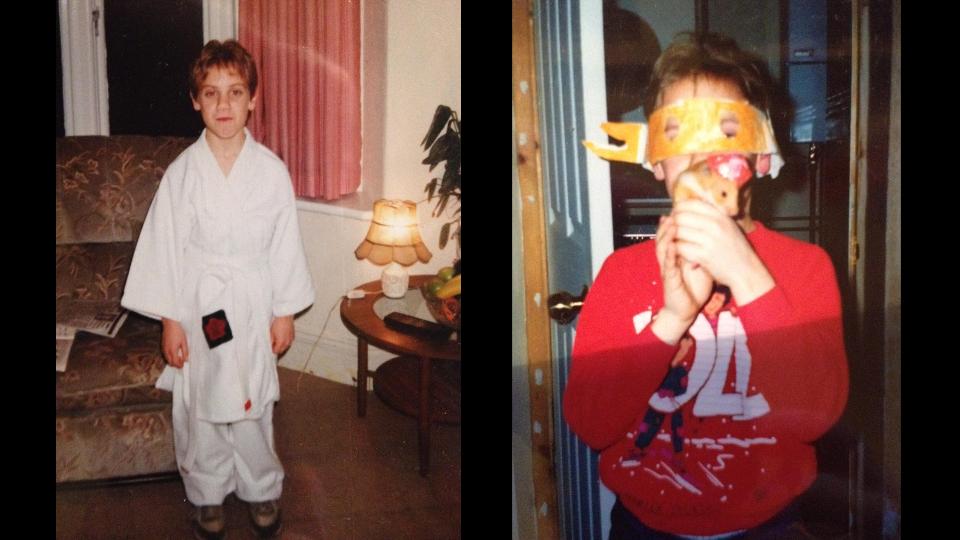
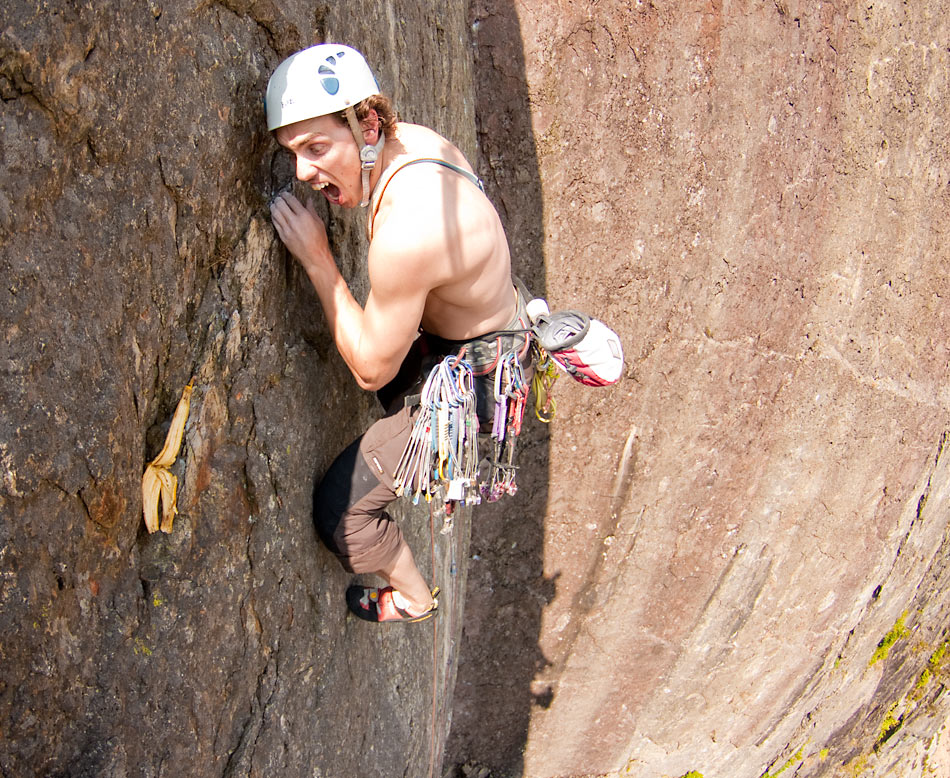
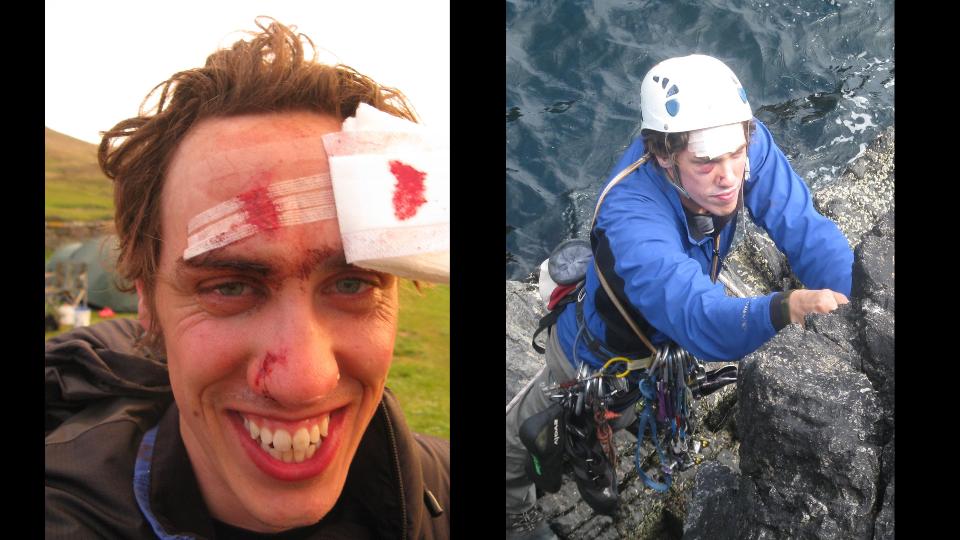
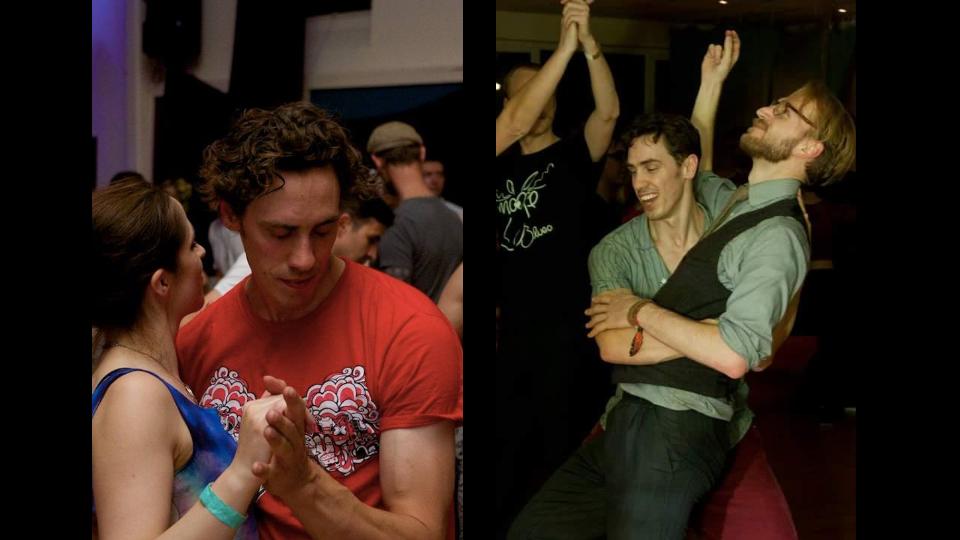
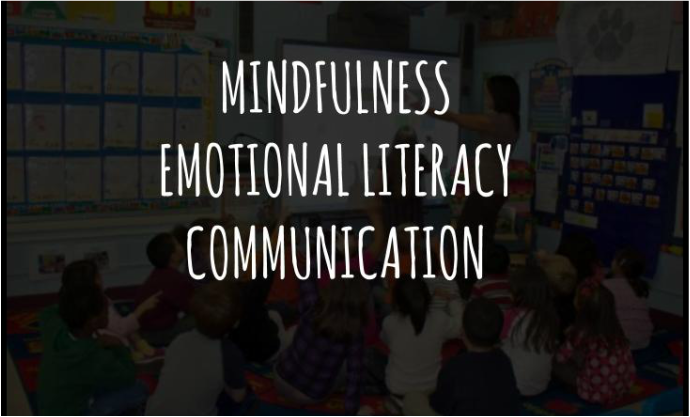
 RSS Feed
RSS Feed